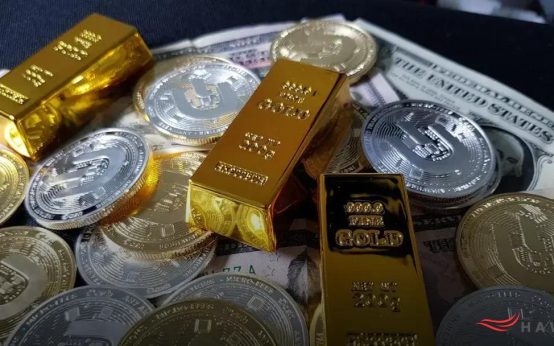Global uncertainty is rife, and its impact on currencies like the Euro and Pound is significant. Navigating these tumultuous economic times requires keen insights into current financial climates, policy decisions, and currency fluctuations. In this article, we’ll delve into investor sentiments and forecasts to better understand the future trajectory. Join us as we explore essential strategies for stabilizing these crucial currencies amid ongoing challenges.
Current Economic Climate
The European and UK economies are navigating through a complex landscape of global economic challenges. Factors such as inflation, trade balances, and national debt are contributing to volatility in the market. Consumers and businesses alike are feeling the pressure of rising costs and changing economic policies. With the end of pandemic-related support, governments and central banks are seeking sustainable ways to stabilize their economies.
Central banks in the Eurozone and the UK have been responding with strategic interest rate hikes to control inflation. However, these measures also impact borrowing and spending, hampering economic growth. For instance, higher rates tend to dampen consumer spending and investment, exerting further strain on already sluggish economic recovery.
The war in Ukraine has further complicated the economic climate, disrupting supply chains and elevating energy prices. This situation poses a threat to industries heavily reliant on raw materials and energy imports, forcing both Europe and the UK to reassess their energy dependencies and look for alternative sources or sustainable solutions.
Additionally, the lingering effects of Brexit continue to shape trade relations and economic cooperation between the UK and other European countries. Adjustments to new trade protocols have required both policy changes and logistical adaptations, affecting everything from import/export balances to labor market dynamics.
Both the Euro and the Pound are thus under pressure from these multifaceted challenges. Their exchange rates reflect market sentiment towards these larger economic concerns, as investors and policymakers alike strive for stability amidst ongoing uncertainty.
Impact of Global Policies

The role of global policies in shaping the economic landscapes of nations cannot be underestimated. As the world economy becomes increasingly interconnected, the decisions made by key international bodies and governments have far-reaching implications for currencies like the Euro and Pound. Trade agreements, for instance, directly influence currency stability and value. The recent shifts in trade policies between major economic entities have created a cascade of effects, impacting the exchange rates of the Euro and Pound.
Additionally, international monetary policies set by organizations like the International Monetary Fund (IMF) or the European Central Bank (ECB) play a crucial role. When these institutions adjust interest rates or implement quantitative easing, the ripple effects are felt across global markets, affecting currency strength. Such policy decisions aim to stabilize or boost economies but often lead to fluctuations in currency markets, influencing investor confidence and decision-making.
Furthermore, the implementation of sustainability and green policies by the European Union influences economic strategies. These policies prioritize environmental factors, which can affect various sectors influenced by Euro and Pound values. Conclusively, Brexit continues to reverberate through policy-making circles, altering trade dynamics and anticipations surrounding the Pound. The intersection of these policies forms a complex web that constantly shapes the economic prospects of the Euro and Pound across global turmoil.
Currency Fluctuation Analysis
Currency fluctuations can have a significant impact on economies and individuals alike. They are affected by various factors, including interest rates, inflation, and economic stability in different regions. When analyzing currency fluctuation, particularly concerning the euro and pound, it’s essential to consider these elements. Inflation rates often dictate a currency’s purchasing power, influencing how much a consumer can buy with one unit of that currency.
External factors such as political stability also play a crucial role in currency valuation. Recent events have shown how political uncertainties can lead to currency depreciation or appreciation. For example, a stable political environment may lead to investor confidence, increasing demand for that currency and thus its value.
Interest rates are another critical component in currency fluctuation. Higher interest rates provide higher returns to investors, making a currency more attractive. As a result, currencies linked to regions with higher interest rates may see an increase in value. Conversely, lower interest rates might lead to decreased currency value.
Understanding these factors helps in predicting possible trends for the euro and pound. Investors and economists often use these analyses to create more accurate forecasts and adapt to potential economic scenarios. Keeping a close watch on these indicators can offer valuable insights into currency trends in times of global turmoil.
Investor Insights and Forecasts

Investors around the world are paying close attention to the current shifts in the Euro and Pound as global instability continues. Experts are weighing in with insights and predictions that are crucial for understanding potential future moves. Uncertainty, influenced by both geopolitical tensions and economic policies, is leading to cautious strategies.
Many seasoned investors suggest focusing on diversified portfolios to mitigate the risks associated with currency volatility. Forward-thinking approaches include monitoring interest rates and inflation trends, which significantly impact currency values. Additionally, it is vital to keep an eye on the responses of central banks to global events, as these institutions play a pivotal role in currency stabilization.
Predictive models and market simulations are tools heavily relied upon by financial analysts to gauge the possible trajectories of the Euro and Pound. These methods enable stakeholders to develop informed forecasts, plan their investments more meticulously, and anticipate shifts in market sentiment.
Ultimately, investor insights are shaped by global supply chain disruptions, energy crises, and international trade imbalances. Having a comprehensive grasp of these elements can better equip investors to make strategic decisions in times of global economic turmoil.
Long-Term Economic Strategies
In the realm of long-term economic strategies, it is crucial to understand the foundation upon which currencies like the Euro and Pound are built within the shifting global landscape. Countries adopting robust fiscal policies can significantly influence the stability and growth potential of their currencies.
One key factor is the role of government interventions. Nations must balance short-term gains from interventionist policies with long-term economic stability. For example, the Eurozone has implemented measures to facilitate economic stimulus through the European Central Bank’s monetary policies. These efforts help in mitigating potential risks like inflation or deflation, promoting a more stable Euro in the long run.
Another aspect involves investment in human capital and infrastructure. Regions enhancing their workforce skills and technology investments stand a better chance of maintaining economic growth regardless of external shocks, indirectly supporting their currency’s strength.
Trade agreements are also pivotal. With global turmoil altering traditional trade routes, the future of the Euro and Pound may heavily depend on strategic alliances. Promoting diversified export partners can help reduce dependency on singular large economies, thereby minimizing risks associated with geopolitical tensions.
Focus on Sustainable Practices
Additionally, long-term sustainability is emerging as a strategic priority. Currencies backed by economies that prioritize sustainable practices, including green energy and reduced carbon footprints, might gain favor with global investors, thus bolstering their long-term position amidst global shifts.
Finally, fiscal discipline is of utmost importance. Adhering to balanced budgeting and reducing national debt levels can protect against economic uncertainties. Such measures provide reassurance to investors and maintain confidence in the currency market, ensuring the Euro and Pound remain resilient pillars in global finance.





